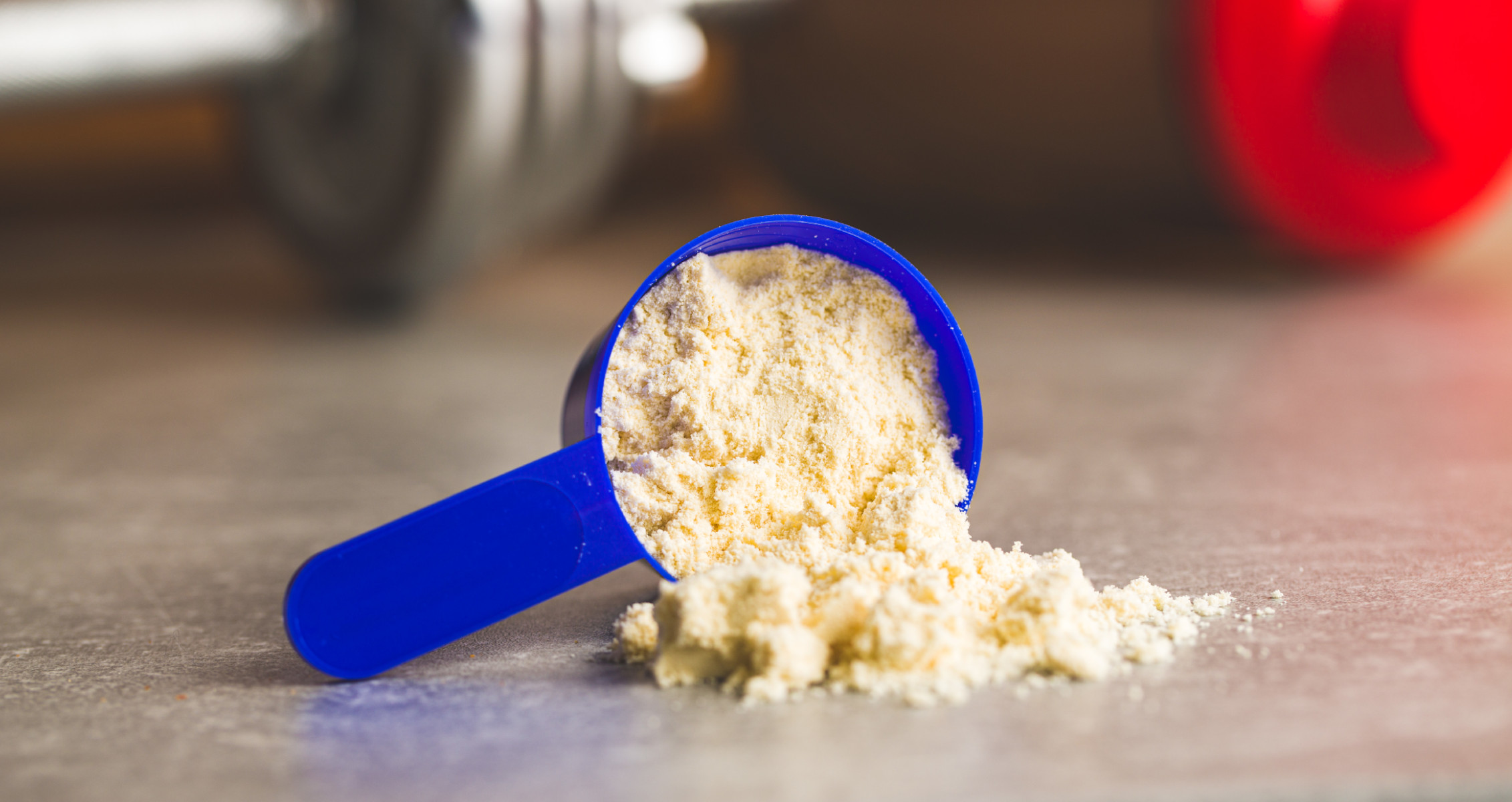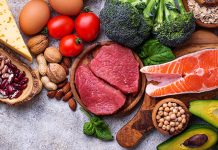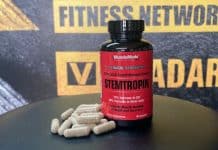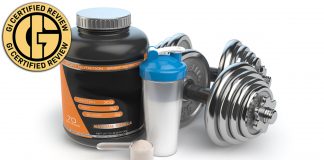
Will too much protein destroy your kidneys?
Depending on who you ask (or at this point, who you follow on social media), you will probably see conflicting arguments on how much protein you should be consuming and if it’s even good for you. Anyone can cherry-pick information to sell you something, and chances are if the place you’re getting this information from also has a convenient and catchy diet label you should probably start checking for other red flags.
We’ve already seen how high quality protein diets can improve lipid panels in competitive bodybuilding populations [1] that do not have any previous conditions, but there still seems to be this recurring worry that too much protein will negatively affect kidney function. Let’s dig into the research so we can keep you jacked and your kidneys safe, shall we?
So, This Whole Kidney Blowing up Thing..?
Alright, I may have been a little facetious with the title here but honestly, when I read the amount of crap that some people like to spew on eating too much protein I just have to turn it into a joke – because unless you’re part of a diseased population (which we’ll cover shortly), there’s very little to worry about.
The biomarker that most researchers and health professionals will use to determine kidney function is something called GFR (glomerular filtration rate) and even more common is the eGFR which is an estimate of that rate. This marker will let you know how hard the kidneys are working and if you are trending towards or already in various levels of chronic kidney disease (CKD). Something to consider as well is that many studies are testing for kidney hyperfiltration which would cause a rise in eGFR values, whereas CKD is caused by a decrease in GFR over time.
That being said, context is key and the population you test is very important, exercise alone has been widely shown to affect laboratory tests [2] to a certain degree depending on training level and type of activity. It should be considered as most people that look to consume higher-protein diets appropriately are exercising populations.
 What is High-Protein Consumption and What is it Good for?
What is High-Protein Consumption and What is it Good for?
When we’re talking about high-protein we’re not talking about adding in that extra half scoop to your shake here. We’re talking about purposely aiming above RDA and looking to elicit a specific result. I don’t know if you have ever taken a look at the recommended daily allowance of protein, but it’s shockingly low at 0.8g/kg or roughly 0.36g/lbs of body weight. That means that for someone who is 100kg or 220lbs, their daily protein allowance should be 80g.
I think I’ll keep my gains instead, thank you very much.
I can hear the outcries already: “That RDA is for non-exercising, sedentary populations!”
Exactly, and that is the demographic that most of these studies for low-protein diets test on. For active, exercising populations such as the readers of Generation Iron, the recommendation is between 1.4 – 2.0/kg/d of protein, or between 0.63 – 0.9g/lbs/d [3] which is still pretty low. On average, most people are consuming closer to 0.8 – 1.2g/lbs/d.
In this case, higher-protein consumption would be anywhere above 0.9 – 1.2g/lbs/d which we’ve seen as having beneficial effects several times in research [4,5]. In fact, a 2014 paper published in the Journal of the International Society of Sports Nutrition in which resistance-trained participants consumed 4.4g/kg/d of protein (or 2g/lbs/d).
The high protein group was not only meant to be in a caloric surplus, but they ate on average 800kcal more than the control group coming only from protein and did not seem to gain any additional fat mass in comparison to the control group [6]. This finding is interesting because it also goes against the theory that “a calorie is just a calorie” as the authors put it.
Compare this to the study by Bray et al. in 2012 where the objective was to test the effects of overconsuming protein on weight gain, energy expenditure, and body composition. Right off the bat, the purpose of this study was to show that over consuming protein led to weight gain and then compare that to the other variables.
The high-protein (HP) group in this study gained more weight than the low-protein (LP) group (3.16kg vs 6.51kg) which on paper looks to be in favor of the low-protein group, however, when you look at the rest of the data you can see that the HP group gained 3.18kg of lean mass while the LP group lost 0.70kg of lean mass.
So in reality, while it looks like eating more protein created an excess and therefore a weight gain, 50% of that gain came from lean body mass whereas over 90% of the extra calories in the LP group was stored as fat [7].
The benefits of eating a high-protein diet on gaining lean mass, controlling weight, and improving energy expenditure are pretty clear. Now, let’s get to the kidneys!
Okay Great, Eating Protein can get me Jacked & Lean, now What?
First off before you go off getting too excited about the previous section you need to answer some important questions:
1 – Do you have diabetes (Type I or II)?
2 – Do you already suffer from chronic kidney disease or only have one kidney?
3 – Have you ever had a heart attack?
The reason why these questions are important is that all of these conditions affect your kidney function and can therefore affect your long-term health when it comes to high-protein diets. If not, then let’s crush some theories!
If you’re not familiar with A. J. Miller, he is one of the first researchers to show a potential for kidney damage associated with protein consumption. This is where a lot of the reasoning behind protein being damaging to your kidneys comes from, but when we look closer at the study he conducted we can notice some pretty important details; the study was conducted in 1925 on rats whose left kidney was removed for the study to effectively double the load of the remaining kidney. Now, once again we need to come back to context: It’s pretty clear that if you’re missing a kidney you should not be eating a high-protein diet. In addition to a missing kidney, previous cardiac episodes also have an effect on the kidneys and after the first incident of a heart attack, eGFR declines at about double the rate annually compared to controls [8].
Have both kidneys and the ol’ ticker been working just fine? Awesome, you have nothing to worry about.
Seriously.
The effects of protein consumption on the kidneys of healthy adults are extremely oversold. So much so that “Neither the Institute of Medicine nor the WHO acknowledges that protein intake contributes to functional declines in renal function with age.” [9] Which is a great statement considering both of those organizations are very conservative in their recommendations.
Even slightly elevated levels of eGFR are rarely something to be concerned about* and the way eGFR is calculated only takes creatinine and age into account. It makes for an interesting argument for kidney function since creatinine levels can be altered due to activity levels, large quantities of animal protein consumption, creatine intake; all of which can increase eGFR independent of kidney function.
Final Word
After reviewing the literature on the subject and sifting through which populations are exposed to the most risk, we can conclude that unless you fall into those categories there is next to no risk involved with eating higher amounts of protein regularly. The variation in eGFR values a healthy trainee might see would most likely be caused more often by lifting and creatine consumption than an indicator of damaging the kidneys. It looks like the highest amount recorded in the literature had subjects eating roughly 2g/lbs/d which showed no adverse effects, but didn’t seem to improve body composition or lean mass by much. This goes to show that there is a point of diminishing returns as well when going too high in protein consumption. Unless your caloric intake is very high, or you have trouble with hunger, most lifters don’t need much more than 1.2g/lbs/day of protein to experience the upper-end of the physiological benefits. A higher consumption won’t result in any fat mass gain but doesn’t seem to promote any further gains.
Closing Quote
“Diets higher in plant and animal protein, independent of other dietary factors, are associated with cardiometabolic benefits, particularly improved central adiposity, with no apparent impairment of kidney function” (Berryman et al. 2016)
References:
- De Moraes, W. M. A. M., Ana Erbęnia Pereira Mendes, Marcela Mota Moreira Lopes, and Fernanda Maria Machado Maia. “Protein overfeeding is associated with improved lipid and anthropometric profile thus lower malondialdehyde levels in resistance-trained athletes.” Int. J. Sports Sci 7, no. 2 (2017): 87-93.
- Foran, Stacy E., Kent B. Lewandrowski, and Alexander Kratz. “Effects of exercise on laboratory test results.” Laboratory medicine 34, no. 10 (2003): 736-742.
- Jäger, Ralf, Chad M. Kerksick, Bill I. Campbell, Paul J. Cribb, Shawn D. Wells, Tim M. Skwiat, Martin Purpura et al. “International society of sports nutrition position stand: protein and exercise.” Journal of the International Society of Sports Nutrition 14, no. 1 (2017): 1-25.
- Antonio, Jose, Anya Ellerbroek, Tobin Silver, Steve Orris, Max Scheiner, Adriana Gonzalez, and Corey A. Peacock. “A high protein diet (3.4 g/kg/d) combined with a heavy resistance training program improves body composition in healthy trained men and women–a follow-up investigation.” Journal of the International Society of Sports Nutrition 12, no. 1 (2015): 39.
- Antonio, Jose, and Anya Ellerbroek. “Case Reports on Well-Trained Bodybuilders: Two Years on a High Protein Diet.” Journal of Exercise Physiology Online 21, no. 1 (2018).
- Antonio, Jose, Corey A. Peacock, Anya Ellerbroek, Brandon Fromhoff, and Tobin Silver. “The effects of consuming a high protein diet (4.4 g/kg/d) on body composition in resistance-trained individuals.” Journal of the International Society of Sports Nutrition 11, no. 1 (2014): 1-6.
- Bray, George A., Steven R. Smith, Lilian de Jonge, Hui Xie, Jennifer Rood, Corby K. Martin, Marlene Most, Courtney Brock, Susan Mancuso, and Leanne M. Redman. “Effect of dietary protein content on weight gain, energy expenditure, and body composition during overeating: a randomized controlled trial.” Jama 307, no. 1 (2012): 47-55.
- Esmeijer, Kevin, Johanna M. Geleijnse, Erik J. Giltay, Theo Stijnen, Friedo W. Dekker, Johan W. de Fijter, Daan Kromhout, and Ellen K. Hoogeveen. “Body-fat indicators and kidney function decline in older post-myocardial infarction patients: The Alpha Omega Cohort Study.” European journal of preventive cardiology 25, no. 1 (2018): 90-99.
- Traylor, Daniel A., Stefan HM Gorissen, and Stuart M. Phillips. “Perspective: protein requirements and optimal intakes in aging: are we ready to recommend more than the recommended daily allowance?.” Advances in Nutrition 9, no. 3 (2018): 171-182.
- Berryman, Claire E., Sanjiv Agarwal, Harris R. Lieberman, Victor L. Fulgoni III, and Stefan M. Pasiakos. “Diets higher in animal and plant protein are associated with lower adiposity and do not impair kidney function in US adults.” The American journal of clinical nutrition 104, no. 3 (2016): 743-749.


 What is High-Protein Consumption and What is it Good for?
What is High-Protein Consumption and What is it Good for?












